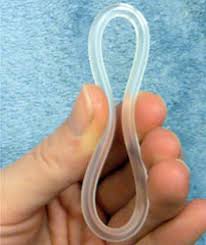Many women are denied therapy with combined (estrogen with progesterone) hormonal contraceptives because published guidelines by doctor organizations recommend against their use in migraine with aura. The concern is that these products might further increase the risk of a stroke that accompanies aura. Stroke risk has been reported to vary directly with aura frequency, and aura frequency in turn has been shown to have a direct relationship to estrogen concentration. With the introduction of increasingly lower dosed hormonal contraceptives it is not clear if these risks are as high as with high-dose contraceptives. These formulations are expected to result in a lower frequency of migraine aura. In addition, continuous therapy eliminates monthly estrogen drops which can be expected to prevent menstrual migraines.
Dr. Anne Calhoun and her colleagues in North Carolina examined a database of 830 women seen in a menstrual migraine clinic and identified 23 women who had current history of migraine with aura, had a confirmed diagnosis of menstrually-related migraines, and were receiving extended-cycle (continuous) dosing of a vaginal ring contraceptive. At baseline, subjects averaged 3.23 migraine auras per month. With extended dosing of the vaginal ring contraceptive, median frequency was reduced to 0.23 auras per month after a mean observation of 7.8 months. No at a single woman reported an increase in aura frequency. On this regimen, menstrual migraine was eliminated in 91.3% of women.
The authors concluded that continuous use of vaginal ring contraceptive was associated with a reduced frequency of migraine aura and with resolution of menstrual migraines.
The risk of stroke in an otherwise healthy woman who does not smoke and has migraine auras is higher than in women without aura, but it still extremely small. It is possible that continuous use of very low dose contraceptives, particularly vaginal ring, may not increase the risk of strokes and may even prevent it.

.png)


